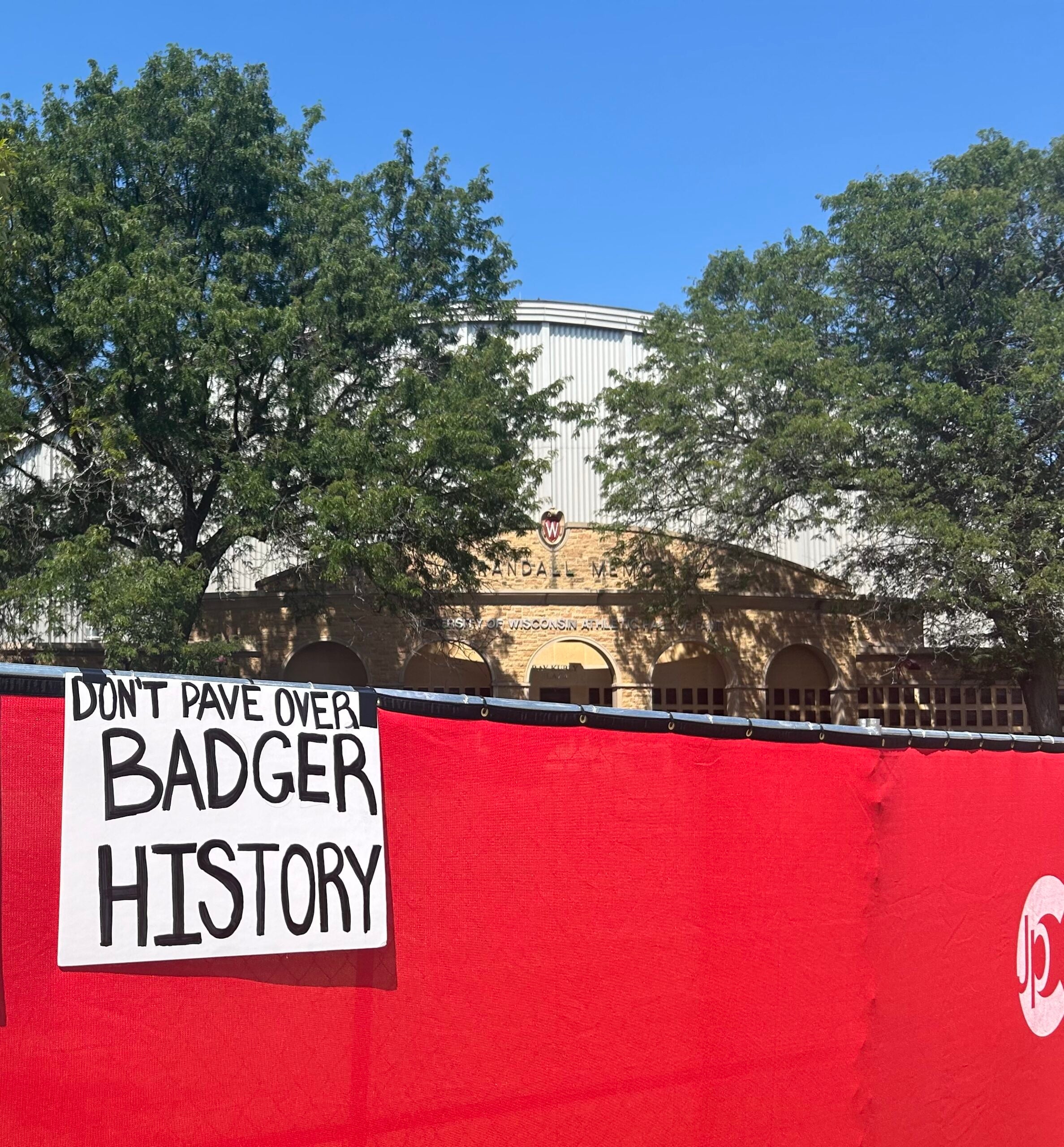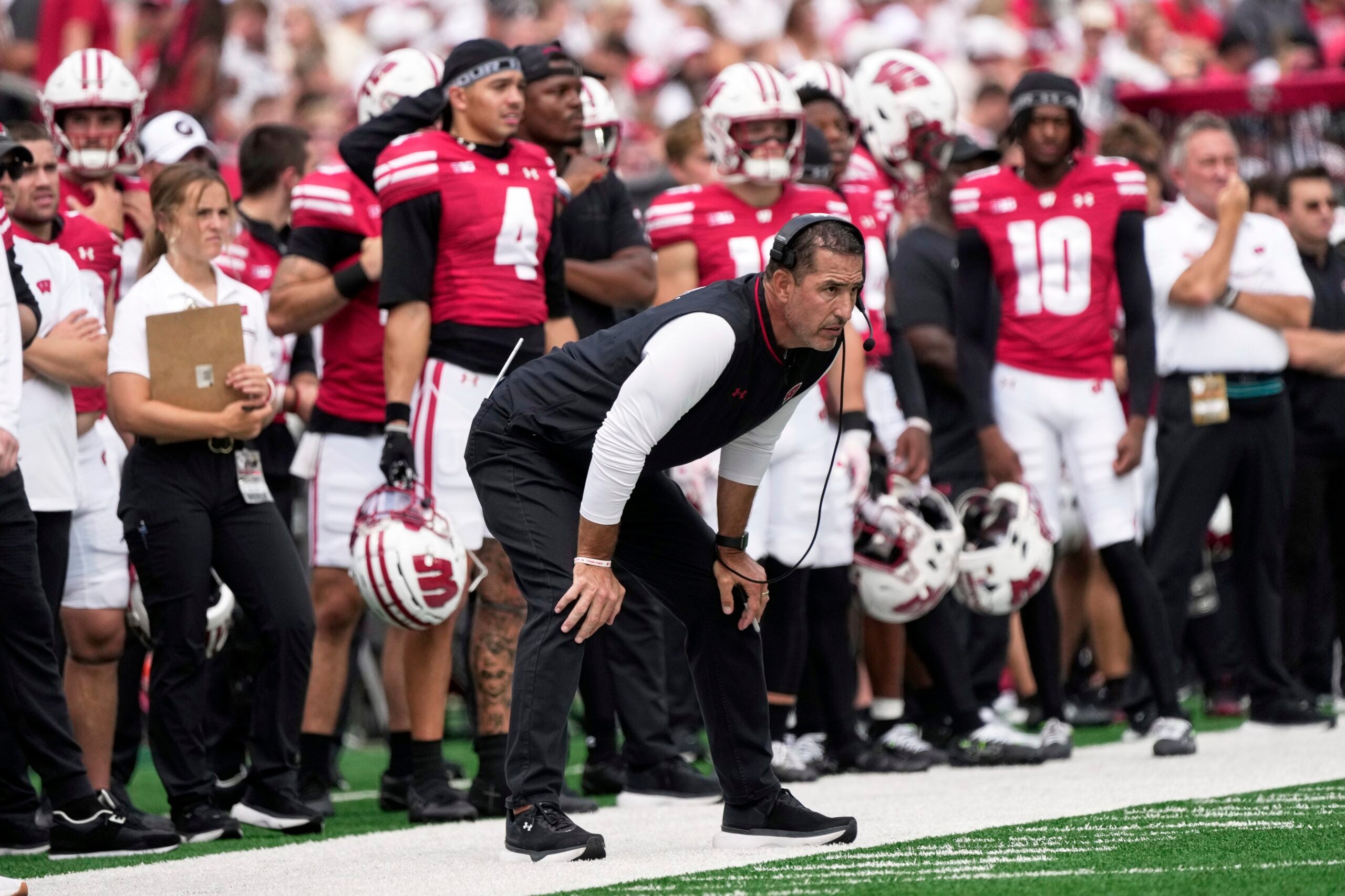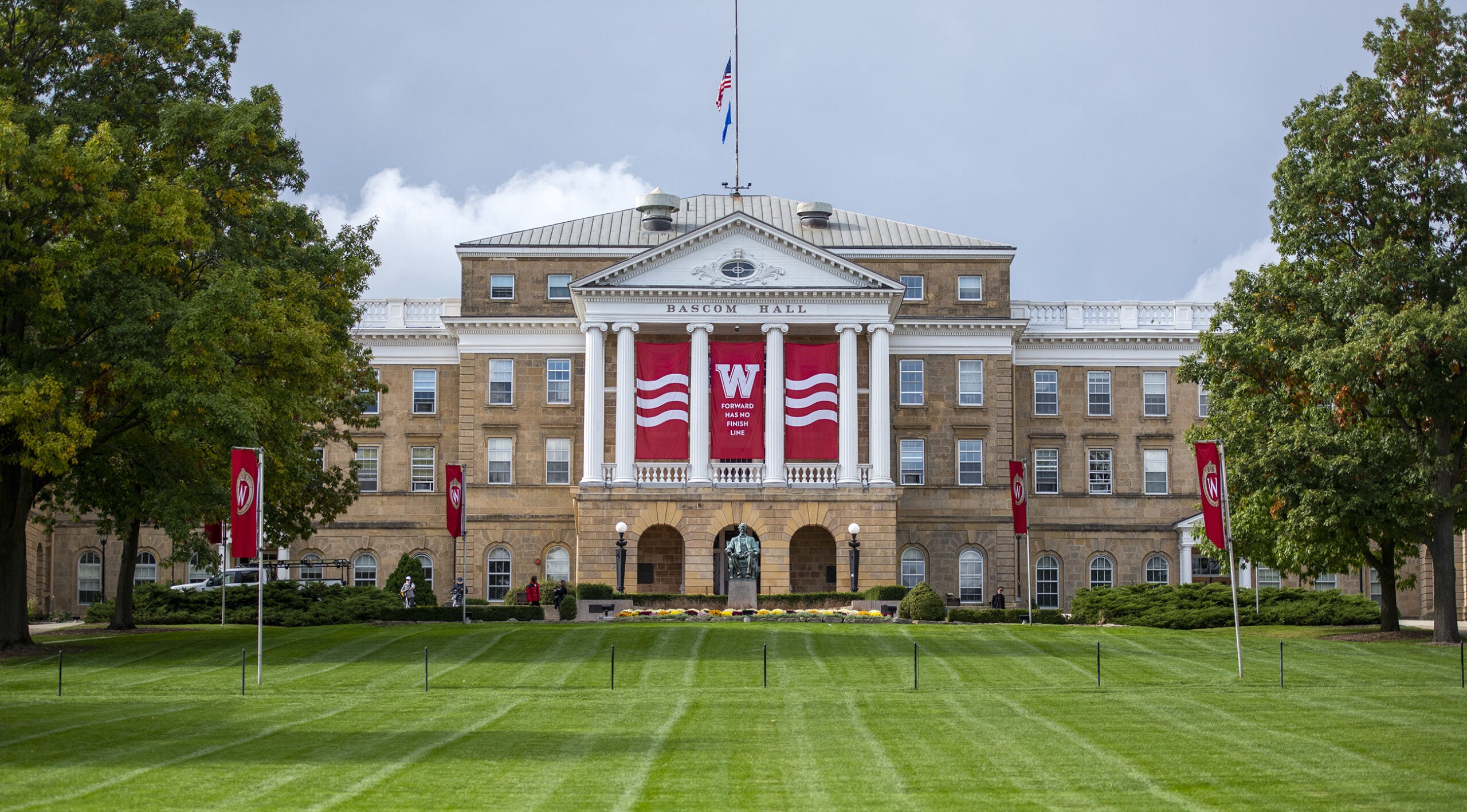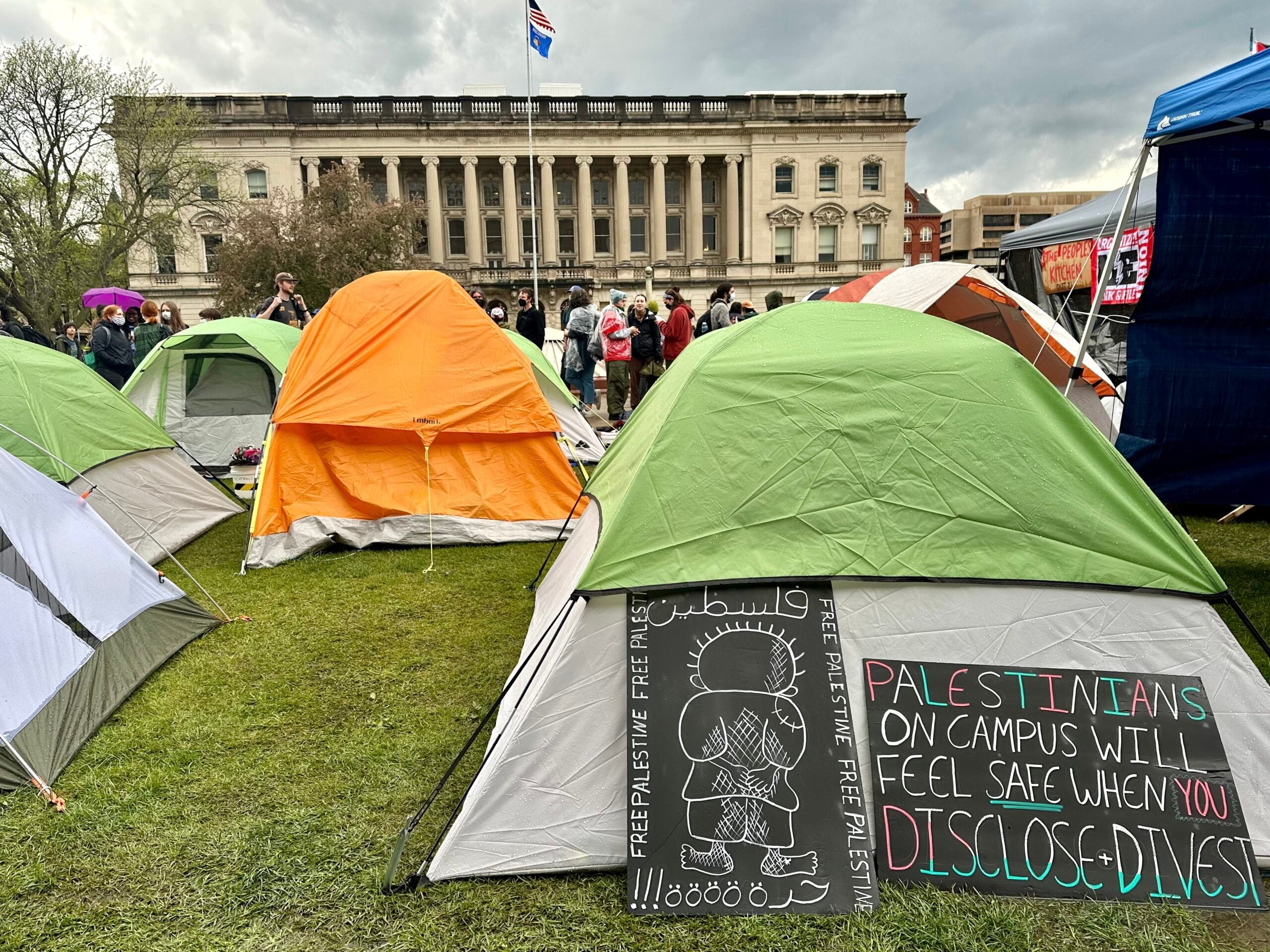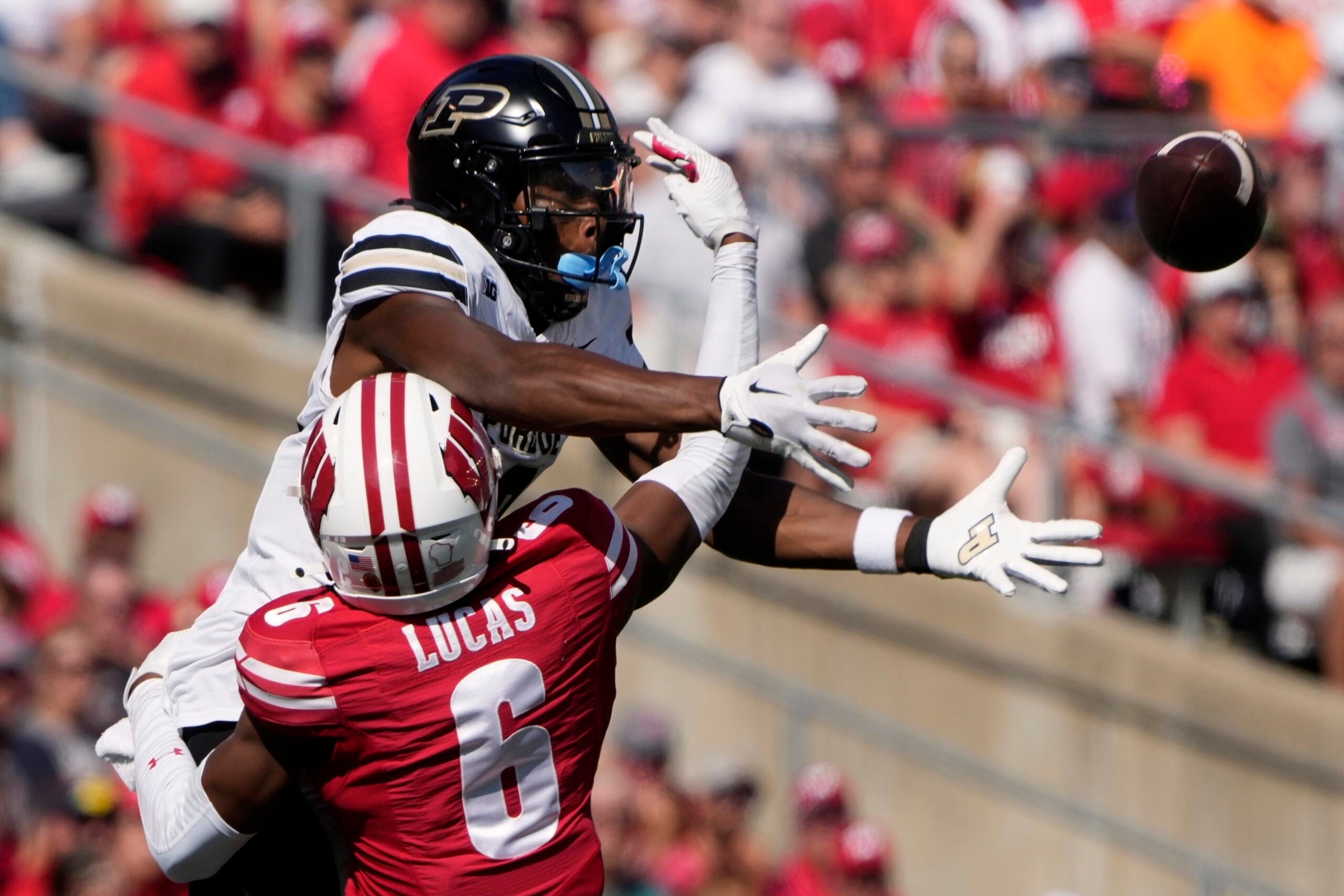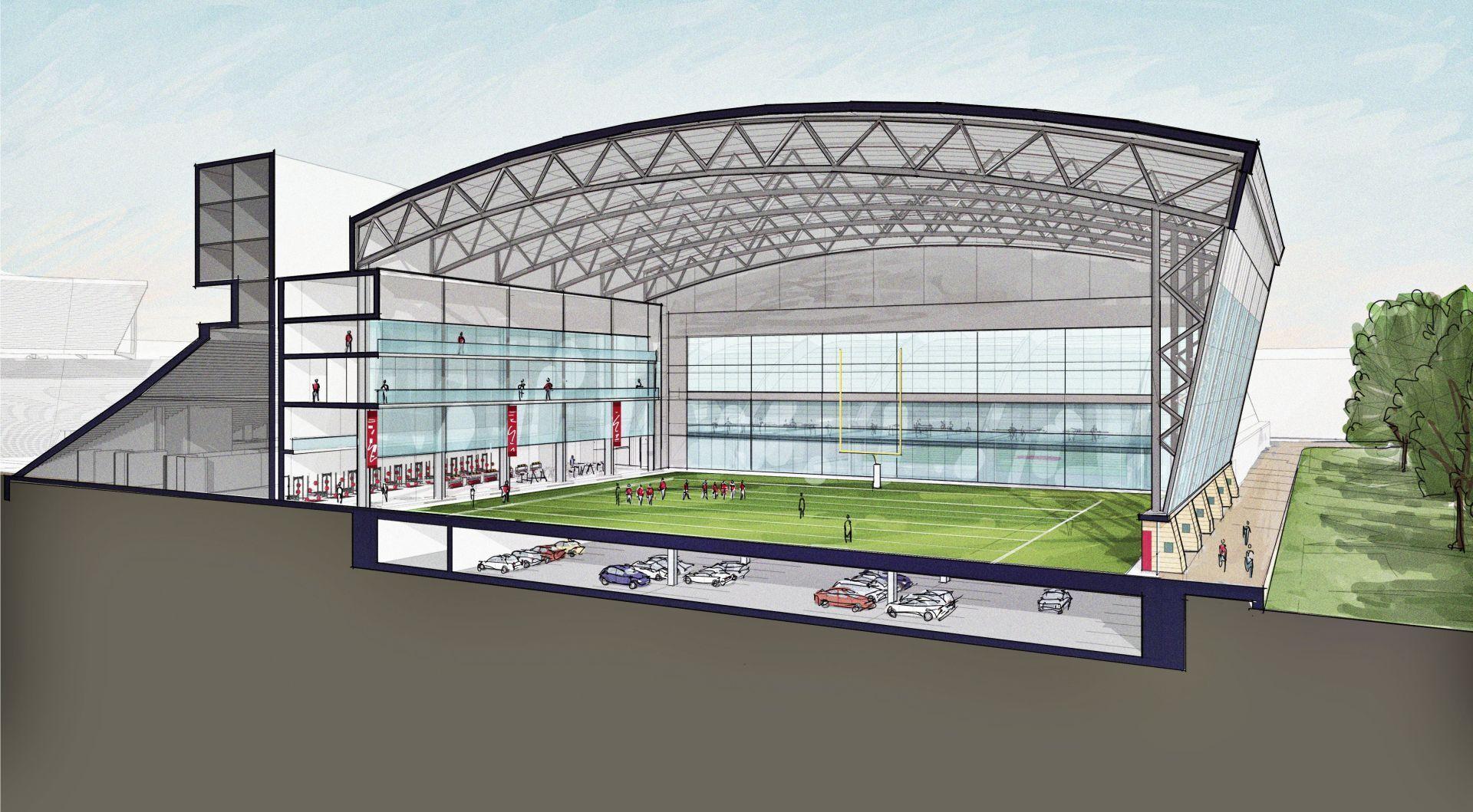Officials at the University Wisconsin-Madison say commemorative bricks will continue to be displayed near Camp Randall stadium.
The Thursday evening announcement follows an uproar from fans, who feared the bricks would be removed from the football stadium.
For three decades, donors to athletics at UW-Madison have purchased personalized bricks, which line a walkway outside of Camp Randall.
News with a little more humanity
WPR’s “Wisconsin Today” newsletter keeps you connected to the state you love without feeling overwhelmed. No paywall. No agenda. No corporate filter.
Many of the bricks memorialize Badgers sports fans who have died.
But those mementos faced an uncertain future due to a planned construction project on the Madison campus. University officials plan to tear down the Camp Randall Memorial Sports Center, known as “the Shell,” by the end of this year to make way for a new indoor practice facility.
As part of that project, university officials had been planning to remove bricks from a walkway at the nearby Hall of Fame Terrace, according to information first reported in the Wisconsin State Journal.
Athletics Department: Bricks won’t be discarded by university
University officials had been circulating an online form, allowing donors to sign up to pick up their bricks between Monday and Thursday of next week.
In an email Thursday evening, UW-Madison Athletic Director Chris McIntosh said, as announced previously, donors will continue to have the option to pick up their bricks.
But the email also added some new information: It said bricks that aren’t picked up will eventually be displayed somewhere near Camp Randall. The exact location of that display has yet to be determined, the email said. None of the commemorative bricks will be discarded by the university, McIntosh wrote.
“I appreciate and acknowledge the emotions that are attached to the bricks,” McIntosh wrote. “There are very personal and meaningful stories associated with them and it was never our intent to dismiss that aspect of the bricks.”
Madison resident Andrew McCauley was among the Badger fans who pushed for the bricks to remain on public display.
As of Thursday afternoon, more than 1,000 people had signed his online petition, which called for the university to preserve the bricks so they could be shown within the Badgers’ new practice facility.
“UW Athletics’ motto is Forever Forward, but you can’t forget those that kind of laid the foundation for where UW Athletics is now,” McCauley said prior to the Thursday evening announcement.
McCauley’s family purchased a brick in 2021. It memorializes Andrew McCauley’s father, Tom McCauley, who played baseball and football for the Badgers in the 1960s before going on to a three-year NFL career.
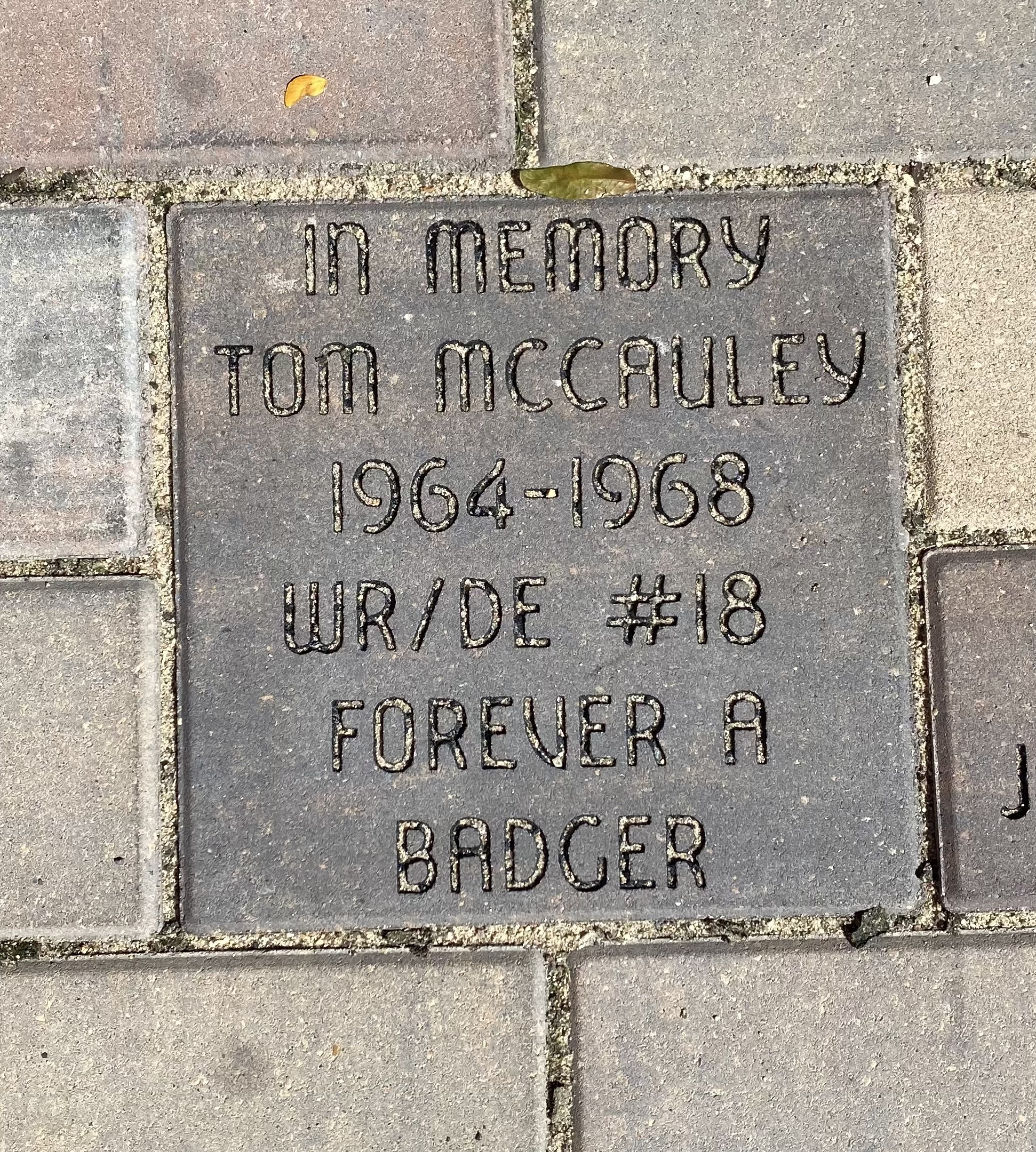
Whenever the Badgers play a home game in Madison, Andrew McCauley likes to visit his father’s brick.
“I just kind of either sit or stand next to the brick, and just kind of reflect on him and his life and what those Saturdays meant to him personally,” he said. “It kind of gets me ready for that busy day ahead.”
Since starting the petition, McCauley said he’s heard from other Badger fans, who purchased bricks to commemorate their loved ones. Many of the deceased connected to Badger football when they cheered from the stands as students or when they played on the football team or in the marching band, McCauley said.
“There’s been a few younger ones that have died from cancer or accidents,” McCauley said. “Having their memory just alive at Camp Randall, because it meant so much to them, and the university as a whole meant so much to them, was really special towards all of the families.”
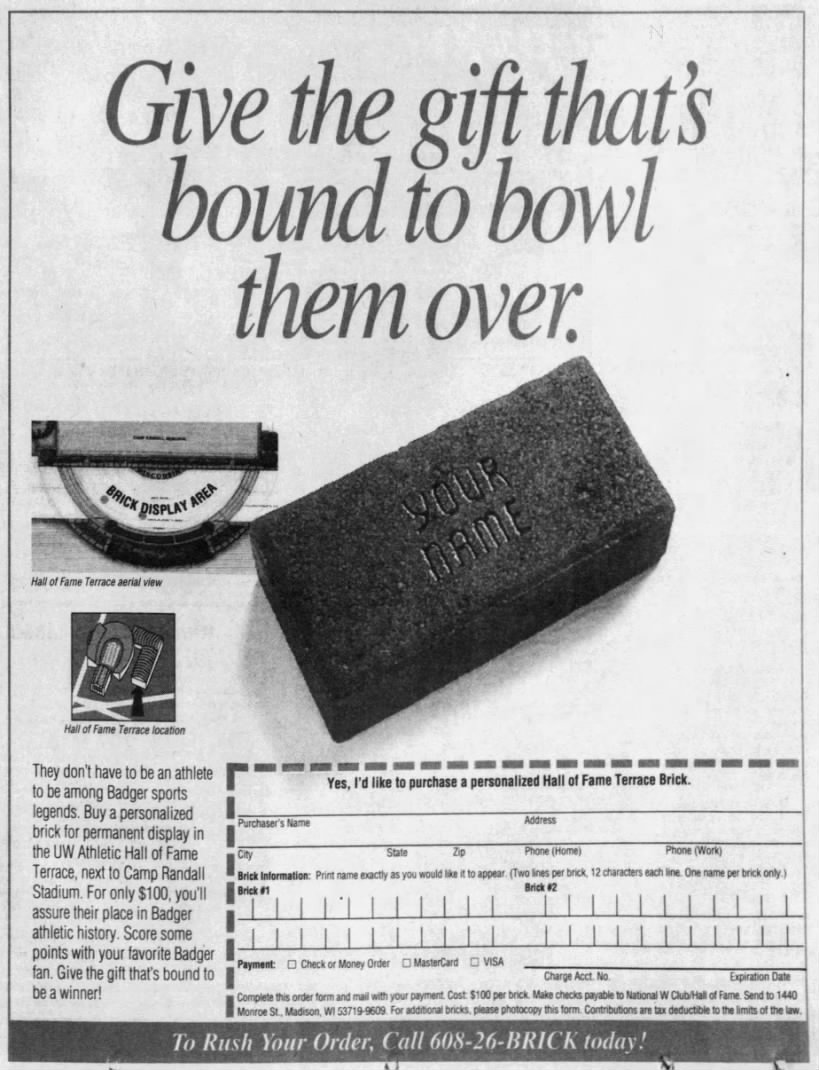
The University of Wisconsin has been selling personalized bricks outside Camp Randall since the 1990s, and an advertisement in a 1993 edition of the Wisconsin State Journal urges readers to gift someone a brick for “permanent display” as a way to “assure their place in Badger athletic history.”
The athletics department is not currently selling the bricks, according to its fundraising website. But, as of 2021, fans could get a smaller brick in exchange for a $150 tax-deductible donation, while a larger brick cost $350, according to an online order form.
Wisconsin Public Radio, © Copyright 2025, Board of Regents of the University of Wisconsin System and Wisconsin Educational Communications Board.

